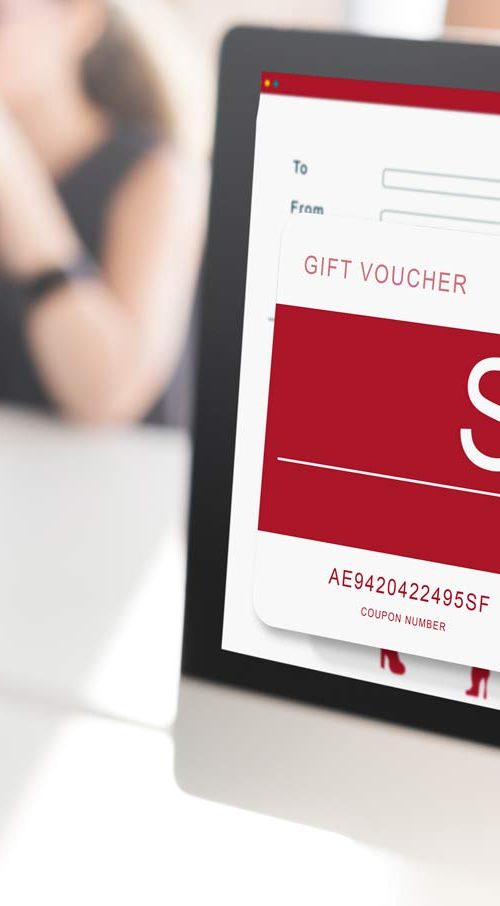Ultimate Debt Consolidation Loan Resource for Business Owners
Navigating the complexities of managing multiple debts, such as credit card balances, overdraft accounts, and traditional loans, can be particularly daunting for business owners. As the weight of these financial obligations grows, the financial pressure intensifies, demanding more resources to manage numerous payments effectively. Debt consolidation loans for the self-employed provide a strategic avenue for entrepreneurs to combine all their debts into a single, manageable loan agreement. This consolidation simplifies the financial landscape into one monthly payment, a single interest rate, and engagement with only one lender, significantly reducing administrative burdens while enhancing financial clarity.
In 2021, research revealed that UK businesses were potentially facing unsustainable debts ranging from £97 billion to £107 billion, according to reports from TheCityUK in the Sunday Times. This alarming statistic emphasizes the urgent need for business owners to explore effective debt management strategies, which are essential for maintaining smooth operations and navigating through financial obligations.
In-Depth Understanding of How Business Debt Consolidation Loans Work
A business debt consolidation loan is a financial tool designed to assist companies in obtaining new funding specifically to pay off existing debts. This method effectively merges multiple debts into a single, more manageable loan, simplifying the repayment process for business owners. Engaging in debt consolidation alleviates the anxiety of managing various payments, enabling businesses to focus on growth and the overall management of their operations.
When seeking debt consolidation loans, it is crucial to identify lenders who offer competitive interest rates that are lower than the combined rates of your current debts. This approach ensures that the consolidation genuinely enhances your financial health and contributes to long-term business sustainability.
Understanding the Repayment Challenges of Government-Backed Loans
A significant proportion of the estimated £38 billion in business debt stems from government-backed COVID-19 loan programs. Over 910,000 businesses have benefitted from these financial initiatives; however, many businesses are now grappling with the challenges of repaying these loans. This difficulty not only poses serious issues for the businesses themselves but also has broader implications for economic recovery efforts across the nation.
In light of these challenges, British banks are being encouraged to expedite their development of effective debt recovery strategies and to enhance staff training aimed at managing debt disputes more effectively. Additionally, business owners must critically evaluate their strategies for managing multiple debts to ensure they can uphold financial stability and operational viability.
Assessing the Viability of Business Debt Consolidation for Your Organization
In simple terms, consolidating business debt is not only feasible but also a strategic move for many enterprises.
Operating a business in the current unpredictable economic climate entails unique challenges. For small to medium-sized businesses, maintaining a healthy cash flow is vital, particularly for those engaged in business-to-business transactions or sectors that experience seasonal fluctuations.
Unexpected costs can arise, whether due to the need for purchasing new equipment or facing sudden price hikes from suppliers. When businesses lack sufficient cash reserves, they can quickly become overwhelmed by debt, complicating their financial landscape.
Often, when faced with financial hardship, businesses may view loans as a primary solution. However, during periods of economic downturn, some might find themselves resorting to multiple loans, leading to a precarious situation known as the debt spiral.
The debt spiral occurs when businesses struggle to meet obligations across numerous financial fronts, causing interest to accumulate and debt levels to rise. Managing daily operations is already a challenging task, and when compounded with the stresses of multiple debts, it can become exceedingly taxing. This is where business debt consolidation loans can play a crucial role in providing relief and assistance.
Comprehensive Overview of Effective Business Debt Consolidation Techniques
When unforeseen economic challenges emerge, UK businesses frequently find themselves accruing substantial debt. In such instances, a business debt consolidation loan presents an effective remedy.
There are several formal and informal avenues available to assist businesses in effectively addressing their debt challenges.
The first step typically involves engaging with a qualified financial expert who can provide personalized insights into tailored debt consolidation strategies that cater to the unique needs of the business.
One potential avenue is a Company Voluntary Arrangement (CVA), specifically designed for limited companies facing debt difficulties. This process parallels an Individual Voluntary Arrangement (IVA), which is commonly utilized in personal bankruptcy scenarios.
Through a CVA, businesses can negotiate terms with their creditors, potentially resulting in a portion of their debts being written off while extending repayment timelines. This arrangement offers essential breathing room for businesses to recover and regain their financial stability.
While opting for a reduced payoff is not mandatory, it can be beneficial, as creditors may prefer this solution to ensure they receive more over time rather than risk the possibility of liquidation.
An insolvency practitioner oversees the CVA process, facilitating negotiations between the business and its creditors while allowing existing management to continue operating the business.
Diverse Strategies for Business Debt Consolidation
Business debt consolidation enables the combination of various business loans, overdrafts, and creditor obligations into a single cohesive loan agreement. This method not only enhances cash flow by consolidating payments into one manageable monthly installment but also reduces administrative time and costs, significantly improving the efficiency of the repayment process.
Organizing Business Credit Card Debt through Consolidation
For businesses managing multiple credit cards, consolidating these debts into a more organized structure offers a practical solution. A business debt consolidation loan presents a unique opportunity to secure more favorable lending terms, potentially lowering monthly payments and freeing up essential capital for operational needs.
Enhancing Cash Flow with Business Cash Advance Debt Consolidation
In specific circumstances, businesses may require immediate access to cash to maintain robust operations. Often, capital is tied up in existing loans and overdrafts, creating challenges in accessing liquid assets. A business debt consolidation loan can streamline this process by merging various debts into a single payment with a lower monthly obligation, thus improving liquidity for critical business functions.
Overcoming Bad Credit Hurdles in Business Debt Consolidation
As businesses expand, they may accumulate various loans and financing options, resulting in intricate repayment structures. This complexity can be heightened by a poor credit score, making it difficult to secure additional financing. However, a business debt consolidation loan offers a pathway to simplify debts into one manageable loan with a single monthly payment, thereby improving overall financial clarity.
Critical Support for Small Business Debt Consolidation Loans
Small businesses play a vital role in the economy yet often face challenges during slight fluctuations in demand or foot traffic. For these enterprises, managing multiple loans without dedicated financial staff can be especially daunting. A small business debt consolidation loan combines all outstanding debts into one single loan, simplifying payment management and alleviating financial stress.
Weighing the Advantages and Disadvantages of Business Debt Consolidation
Business consolidation loans come with distinct benefits and challenges; however, many of the potential issues can be effectively managed and mitigated.
Advantages of Business Debt Consolidation Loans
Achieving Financial Savings through Debt Refinancing
By selecting a refinancing loan with a larger principal and extended repayment period, your business can secure a more substantial total amount while maintaining similar monthly payments. If you qualify for a lower-interest refinancing loan compared to your existing debts, you will incur less interest over time, ultimately saving your business money. Paying off a mix of current loans or replacing an older loan with a new, lower-interest option can also help improve cash flow each month.
Maintaining Operational Continuity During Financial Struggles
Successful debt consolidation can enhance cash flow and support ongoing business operations while ensuring profitability. By consolidating debts with a single lender, businesses can redirect funds that would typically be allocated towards high-interest payments, facilitating more strategic investments in operations and growth initiatives.
Simplifying Payments for Busy Business Owners
For business owners focused on their operations, managing multiple repayments can feel overwhelming. With a consolidation loan, the focus shifts to a single monthly payment, significantly reducing administrative burdens and allowing owners to concentrate fully on effectively running their businesses.
Improving Cash Flow through Smart Debt Management
With business debt consolidation loans, you are likely to incur less interest each month, enabling you to retain more cash for crucial purchases and investments that drive growth and sustainability.
Enhancing Your Credit Score through Better Financial Practices
By managing your financial responsibilities efficiently through a single monthly loan payment, you can establish a stronger repayment history. This positive track record enhances your attractiveness to lenders and suppliers, increasing your chances of securing future financing and credit opportunities.
Identifying Potential Drawbacks of Business Debt Consolidation
Long-Term Interest Rate Considerations
When consolidating business debt, payments are calculated based on the initial amount owed, which includes both principal and interest. Even if you secure a lower interest rate through a business debt consolidation loan, you may end up paying more in interest over the life of the loan due to extended repayment terms.
Recognizing the Temporary Nature of Debt Solutions
While consolidating debt can relieve monthly payment pressures, it is essential to address the underlying financial issues within your business. Implementing a long-term strategy may be necessary to achieve lasting financial stability and sustainability.
Understanding the Integration of Personal and Business Debt
If you are a freelancer or self-employed individual operating without a limited company, your debts are categorized as personal, allowing for potential consolidation opportunities. However, if your business operates as a limited company, those debts are legally separate from your personal debts. Consulting with a financial advisor can help evaluate your specific situation and identify effective debt management options.
Consider the example of a plumber working as a sole trader on a large project that extends over a month, with payment delayed until 60 days after completion.
This prolonged project may hinder the plumber from taking on additional jobs, leading to a cash flow quandary. During this time, essential supplies for the job are purchased on credit, with unforeseen vehicle repairs exacerbating the financial strain.
Consequently, the plumber finds themselves managing debts from both the garage and the builder’s merchant. This scenario highlights how personal and business debts can intertwine, underscoring the importance of self-employed debt consolidation loans to prevent financial turmoil.
Understanding the Dynamics of Self-Employed Debt Consolidation Loans
For individuals grappling with a combination of personal and business debts, a self-employed debt consolidation loan can offer considerable relief. This type of loan empowers you to pay off creditors and streamline repayments into a single monthly obligation at a lower interest rate than the sum of your previous debts. This approach can help restore financial balance, allowing you to prioritize income generation over managing numerous administrative tasks.
When applying for debt consolidation loans, ensure that your monthly payment is lower than what you currently remit to your existing creditors; otherwise, the consolidation may fail to yield its intended benefits.
Proven Techniques for Effective Business Debt Consolidation
To effectively consolidate business debt, whether from credit cards, overdrafts, or loans, businesses should seek a specialized business consolidation loan. This financial solution consolidates all existing debts into one manageable loan, simplifying repayment into a single monthly payment with one interest rate and one lender, ultimately enhancing financial clarity.
Leading Business Debt Consolidation Companies to Consider
Today’s business debt consolidation companies significantly differ from traditional corporate banks. While some banks do offer consolidation loans, there are also specialized lenders that cater to a variety of business types, including micro-businesses and SMEs. These lenders often emphasize ethical lending practices and tailor loans to align with specific business circumstances.
Critical Examination of Business Debt Consolidation Loan Rates
When assessing a business debt consolidation loan, it is essential to compare various options, as interest rates can vary widely. Rates may range from slightly over 5% to as high as 36%. By exploring different lenders, you can identify a loan that meets your requirements; even if some options come with higher rates, they might still provide the vital financial support needed in a timely manner.
Analyzing the Impact of Business Debt Consolidation on Your Organization
In cases where your business debt arises from isolated events, a CVA could represent the most effective path to debt relief.
Company directors can prevent liquidation and bankruptcy by adhering to the terms established in the business debt consolidation agreement.
By implementing this strategy, a business can aim for debt freedom within a five-year timeframe. During the CVA period, interest can be frozen, and additional charges may be halted, making debt repayment more manageable. In some scenarios, up to 75% of a business’s unsecured debt can be eliminated through a CVA.
A Creditor Voluntary Liquidation (CVL) serves as an alternative to business debt consolidation that many financial counseling agencies might recommend. In this process, parties legally entitled to company assets can identify and distribute these assets during the liquidation process.
During liquidation, the company is dissolved, and the CVL represents a resolution agreed upon by the shareholders. This stage is critical; at this point, the company may be too far gone to consider a debt consolidation loan, indicating insolvency and an inability to repay debts fully.
The economic downturn has, regrettably, pushed numerous UK businesses into CVL scenarios, a situation that no shareholder or director wishes to confront. A liquidator is appointed to oversee the CVL business debt consolidation process.
The liquidator will hold a meeting with creditors to scrutinize the insolvency claims made by the directors, with creditors formally appointing the liquidator. The liquidator’s responsibilities in the context of business debt consolidation include converting assets into cash, investigating the conduct of company directors, assessing the company’s debts, and facilitating payments to creditors.
Discover Additional Resources: Popular Topics Among Visitors
 Buy Now Pay Later Schemes Currently Under Scrutiny
Buy Now Pay Later Schemes Currently Under Scrutiny


